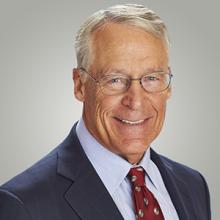Family businesses - the key to the Big Society?
Anybody who has ever drunk a pint in a pub in Kent will know what year the brewer Shepherd Neame was founded – 1698. The number is all over their beer bottles and pub-signs. There’s another number that also tells a story about the business: 1,500. That’s how many people it employs. It also uses hundreds of local suppliers and contributes to local charities. The business is rooted in its local community, and couldn’t be otherwise.
It’s a far cry from the borderless, weightless sort of business that exemplifies the most depressing side of the financial services industry. Take, for example, high-frequency trading companies. They hold positions for an average of 11 seconds. I know they will argue what they do is vitally important for “efficient price-discovery”, but really anybody who thinks that making money off momentary discrepancies in the pork-belly futures market is significantly adding to human society seems to have missed several significant points about life and is, frankly, beyond help and can be safely ignored. Sorry. But you know what I mean.
There is more to life than money, and certainly more to life than making money from money. It’s just the sort of thing that makes our political overlords start blustering about “ethical capitalism”. So far they have been poor at explaining what they mean by this. But if you dig a bit you can get an idea. It’s all about community. British prime minister David Cameron’s favourite thinker is Philip Blond - the Big Society is based on his ideas, while UK Labour leader Ed Miliband’s house egghead is Lord Glasman (or Baron Glasman of Stoke Newington, to give him his full title). You might not have heard a lot from them yet, but you will.
Both Blond and Glasman are followers of Alasdair MacIntyre, a Catholic, former Marxist and a colossus of modern philosophy whose big idea is generally called communitarianism. His ideas are all rather involved and are based on Aristotle and Aquinas but, put crudely, MacIntyre thinks that fulfilling human lives are lived in small-scale communities with shared ends, in which people have generally recognised roles.
He thinks contentment comes from doing your job well, whether that is brewing beer, teaching philosophy or programming computers. Some skills, like being a good thief, can’t be good. Money-market traders he puts in the same category as cat-burglars. Like Aristotle he thinks money is a good thing, as it gives you choice, but that the pursuit of money for its own sake is bad.
The examples MacIntyre gives of good societies are things like a workers’ co-operative in a village in Donegal and kibbutzim. One of the big criticisms of Macintyre is that in a globalised and technological world you can’t go back to living in villages. Aged 81, he doesn’t seem too bothered about answering that criticism, and one assumes that he doesn’t spend too much time on Facebook or iTunes.
But family businesses could be the missing link in Macintyre’s thinking. Done right, they are proper, modern businesses that also foster community. My prediction for 2012 is that as the communitarians get their claws into the politicians, we’ll hear far more about family business in their speeches. I’m taking bets on whether Miliband or Cameron is the first to be seen pulling a pint of Shepherd Neame’s beer.






